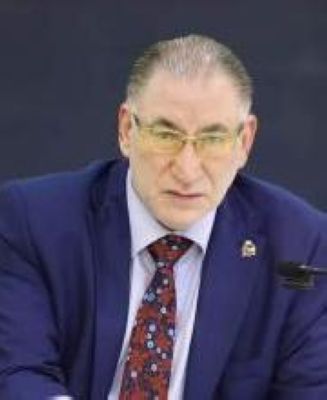The Palestinian issue is one of the most complex and sensitive issues in modern history, as its ongoing conflicts have drawn wide global attention and contributed to shaping regional and international policies. Amid these challenges, Jordanian diplomacy, led by His Majesty King Abdullah, plays a crucial role in striving to achieve peace and stability, which was confirmed by the high representative of the European Union for foreign affairs and security policy, Josep Borrell, who praised the distinguished Royal efforts during the ongoing crisis in Gaza.
In light of the escalation of violence in Gaza and the deterioration of the humanitarian situation, the Jordanian Royal efforts have emerged as a major factor in mobilising the international community to work towards a ceasefire. Jordanian diplomacy, which has extensive experience and an influential presence, has focused on achieving two main goals: Stopping the military escalation and alleviating the humanitarian suffering of the Palestinian people.
Through his extensive communications with world leaders, including the United States, the European Union, the United Nations and the Arab League, King Abdullah was able to present a comprehensive vision based on a comprehensive peaceful solution. According to Borrell’s statements, Jordan was “the voice of reason and the call for peace” during the crisis, praising the King’s efforts to bridge the gaps between the conflicting parties and ensure the resumption of political dialogue.
Jordan’s efforts were not limited to the political aspect only but extended to providing urgent humanitarian support to the Palestinians affected by the war. Through the Jordanian Hashemite Charity Organisation, humanitarian and medical aid was sent to Gaza in record time, reflecting the Kingdom’s deep commitment to supporting our Palestinian brothers.
In addition, Jordan’s diplomatic efforts were working hand in hand with humanitarian efforts to secure a ceasefire. Borrell stressed that these steps contributed significantly to reducing suffering and saving lives, reflecting Jordan’s comprehensive vision to preserve human dignity and enhance regional stability. Speaking about Jordan’s role in supporting the two-state solution, Borrell noted that His Majesty the King is one of the most prominent advocates of this solution to achieve a just and lasting peace. In light of attempts to marginalise the Palestinian cause, Jordan has continued to emphasise the need to establish an independent Palestinian state on the 1967 borders, with East Jerusalem as its capital.
Jordan believes that the two-state solution is not just a political option, but rather the only option that can guarantee the rights of both Palestinians and Israelis, and put an end to the long conflict. This vision has been a key focus of the King’s recent efforts, as he sought to return the Palestinian cause to the forefront of the international agenda.
In this context, Borrell noted Jordan’s role in protecting Islamic and Christian holy sites in Jerusalem, as the Hashemite Kingdom is the custodian of these holy sites. He pointed out that maintaining the status quo in the holy city is an essential part of any political solution to the conflict.
Jordanian-European relations constitute a successful model of international cooperation in facing regional challenges. Borrell stressed that the European Union considers Jordan a strategic partner in promoting security and stability in the Middle East. By supporting a political solution to the Palestinian-Israeli conflict, Jordan works side by side with the European Union to ensure respect for international law and human rights.
Borrell also noted that Jordan’s efforts are an inspiration for European diplomacy in dealing with regional crises. The Kingdom has demonstrated its ability to move quickly and effectively in critical times, making it an indispensable partner in promoting peace and stability.
Borrell’s praise of the Royal efforts is not just a passing diplomatic recognition, but rather reflects a growing international recognition of Jordan’s pivotal role in the region. Jordan has become a strong voice of wisdom and moderation, and an example of responsible leadership in the face of crises.
In this context, many world leaders agree that Jordan’s efforts are not merely a reaction to events, but rather part of a comprehensive strategy aimed at building a more stable and just future in the Middle East.
Finally, Josep Borrell’s praise of the Royal diplomatic efforts reflects global appreciation for Jordan’s role in promoting peace and stability in the region.
Under the leadership of King Abdullah, Jordan continues to prove its position as a key stabilising factor and a key partner in achieving the two-state solution.
As the world faces increasing challenges, Jordanian diplomacy remains a model for dealing with crises wisely and effectively.
Hasan Dajah is professor of Strategic Studies at Al Hussein Bin Talal University
